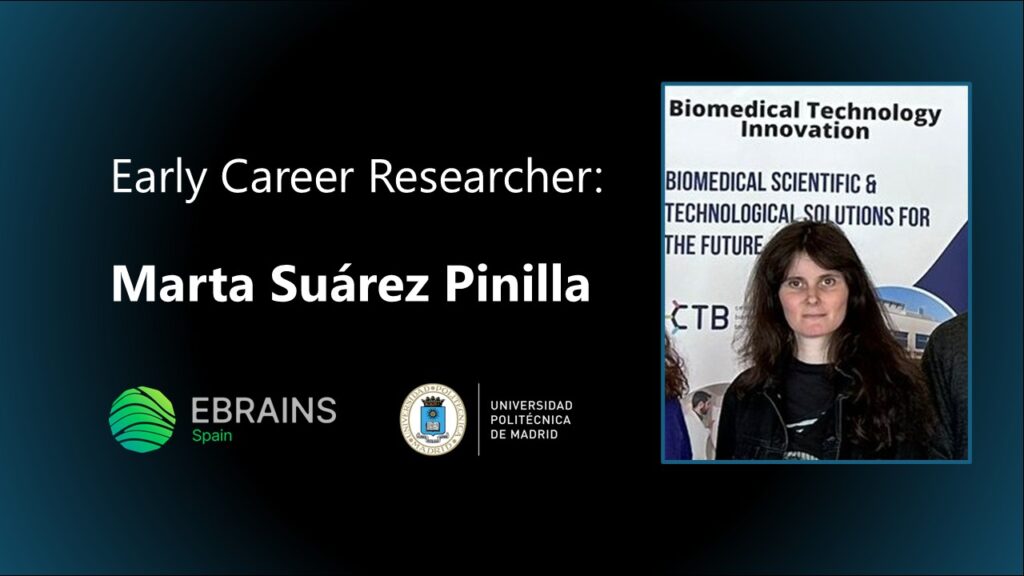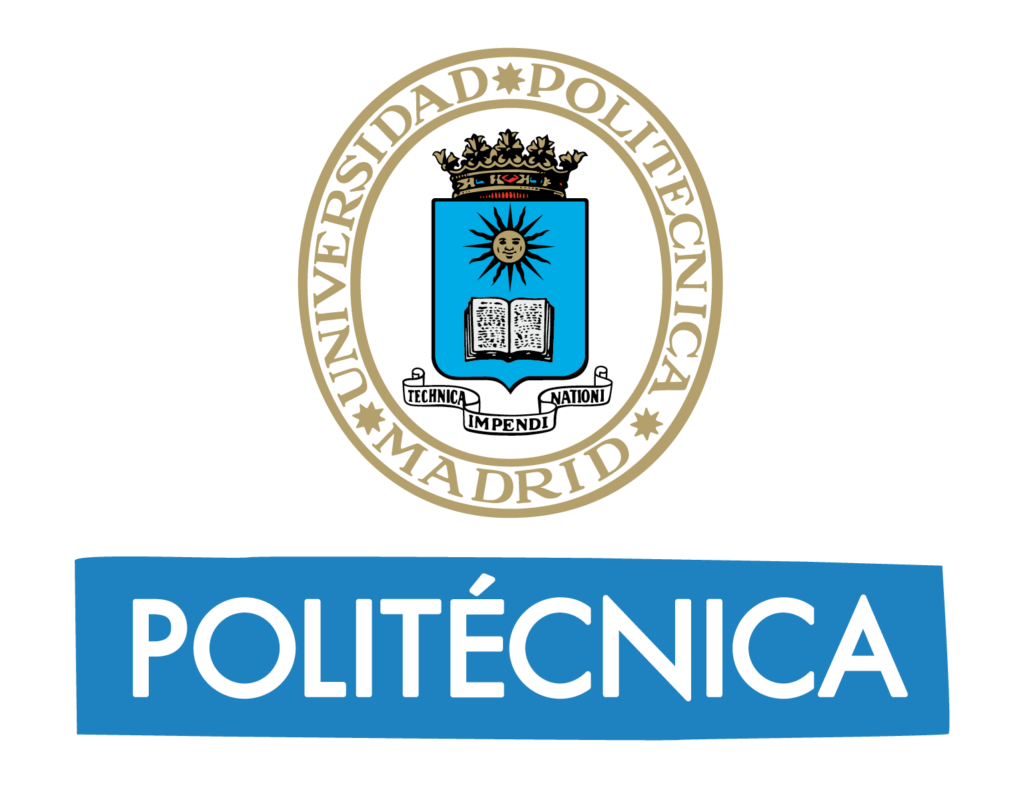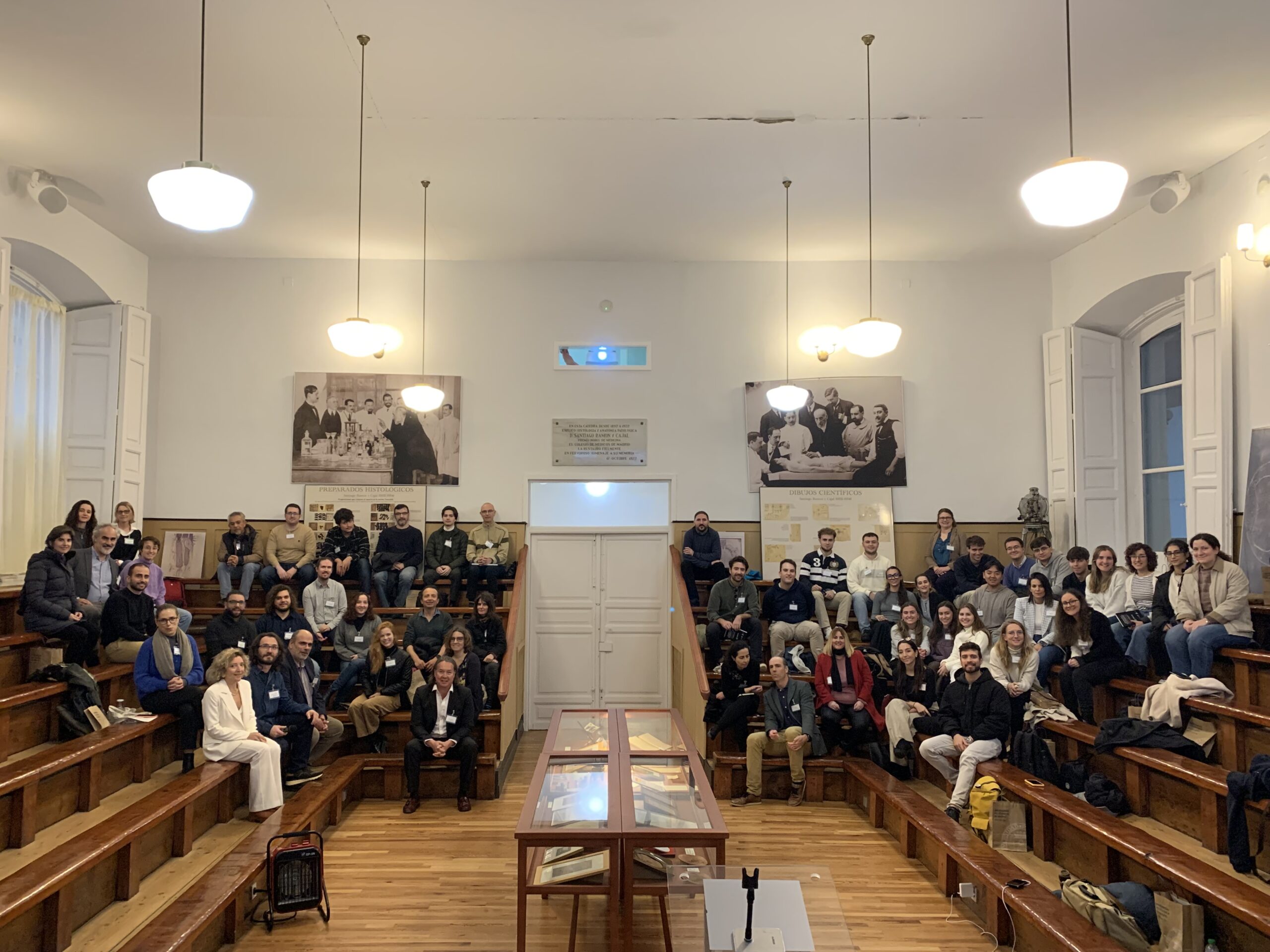
What is your background in brain research?
My original background is in clinical neurology. I studied Medicine and did the Neurology residency in the Hospital Universitario Central de Asturias. During that time I became increasingly interested in neuroscience research, especially the basis of normal and pathological cognition and the construction of the conscious experience. As a result, I decided to start a full-time research career, but my clinical experience has inspired a lot of my endeavours. I did the PhD in the Sussex Centre for Consciousness Science (University of Sussex, UK) and a post-doc in the UCL Institute of Neurology (UK). After that I returned to Spain to work in the Laboratory for Clinical Neuroscience (UPM). My main research line explores the probabilistic basis of perception and cognition using different tools, from behavioural experiments to neurophysiology and computational modelling.
What made you apply to the position within the Spanish EBRAINS node?
From my experience in the field, I have realized that one of the main unresolved issues in Neuroscience is the insufficient collaboration, both between laboratories and across subfields. This leads to redundance of efforts, inefficient exploitation of the available resources and knowledge acquired elsewhere, lack of replicability and incoherent development of knowledge along research lines. Therefore, I found that the EBRAINS infrastructure is a much-needed effort to tackle this issue, and I especially appreciate the international and multidisciplinary scope.
How has your experience been with the platform? Did you need to learn anything new to be abe to use EBRAINS?
I have been amazed by the amount and comprehensiveness of databases and resources that are available in the platform, and their elegant and easy classification through the knowledge graph – which under the surface is incredibly complex and multi-layered. I think that raising awareness of the wealth of available resources would greatly benefit the Neuroscience community. As part of my job is to advice on the use of the platform and the different tools provided (databases, atlases, software for analysis and modelling), I am happy to be able to help toward this goal.
Investigating the intricacies of the EBRAINS resources I have found that one of the barriers that prevents optimal collaboration in the community existed also in me: I mean the inertia of staying in the comfort zone of our learnt habits of research, which often is not due to laziness but merely to lack of time. EBRAINS software tools are Python based, and I have been accustomed to other programming languages such as Matlab but have long wanted to have the opportunity (and the excuse!) to learn Python as well. I hope that through this I am in a position to help others to break the programmatic barrier if they have little coding experience or if, like me, are used to other languages.
Have you you the chance to meet with other members of the Spanish node?
I have met members of the Spanish and other nodes in this year’s EBRAINS Tutorials and Users Day in Heidelberg. I have also met some members in a recent meeting in Zaragoza (Foro Tecnológico y Empresarial: Neurotecnología y Salud), where I referred to the aims of EBRAINS in a conference. Finally, I have participated online in the last meeting of the Spanish Node (28th May). Last year, before I started working for EBRAINS, I also took part in two interdisciplinary meetings of the Spanish EBRAINS Node (Human Memory Circuits and Human Motor Circuits).
In the future, how do you think you will be able to help with their EBRAINS experience?
I hope that I can help other node members to navigate the platform to discover resources that are suited to their research interests, and, as I mentioned before, to break the barriers that may prevent using these resources to their full potential, by providing training and advice when needed.
Could you comment on the utility of EBRAINS services and data for research and for private companies
As I have mentioned before, the EBRAINS platform provides an immense wealth of resources that is at the same time interdisciplinary, comprehensive and fine-grained: databases related to the most varied and specific topics (species, brain region, type of data, clinical status), detailed multiscale brain atlases, software for analysis and simulation, modelling and prediction of the behaviour of single neurons or wide brain networks in normal and pathological conditions, etc. These resources should help towards better and faster research (based on the latest interdisciplinary evidence, using greater sample sizes, saving time of solving or developing what has already been solved or developed elsewhere, inspiring toward new paths and gaps in research questions) and toward development of neurotechnology solutions and services.





